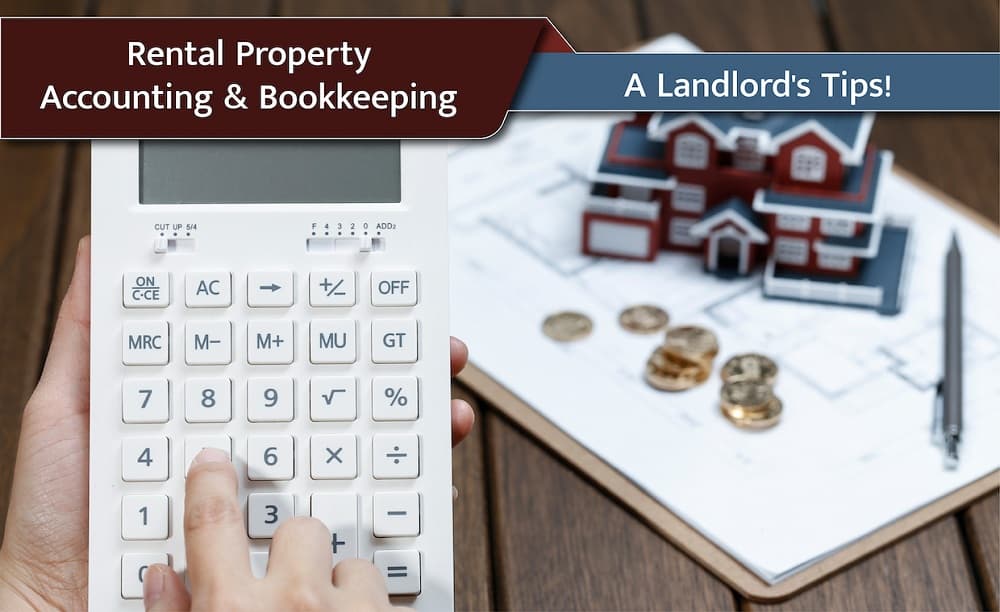
As a savvy property owner or landlord, you likely appreciate the significance of effective financial management for the success of your rental properties. However, keeping track of income, expenses, deductions, and tax obligations can quickly become overwhelming without the right strategies and tools in place. This guide aims to equip you with valuable tips and insights that streamline your rental property accounting and bookkeeping tasks – so you can focus on growing your rental property business while avoiding costly mistakes.
Rental Property Accounting & Bookkeeping Tips for Landlord
Read on as we uncover tried-and-true practices designed specifically for landlords like you.
01. Forecasting and Projections

Forecasting and projections are essential financial management tasks that help you anticipate the future performance of your rental properties. By analyzing historical data, current market trends, and upcoming developments, you can make informed decisions and create effective plans to grow your rental property business.
In essence, these forecasts allow you to streamline your revenue projections and expenses. Imagine showing how financially successful your rental properties will be if managed well! That’s somewhat the purpose of forecasting- it helps you spot potential opportunities or challenges in advance.
When creating forecasts for rental properties, consider various factors such as estimated rent prices, vacancy rates, maintenance costs, property taxes, insurance premiums, and seasonal fluctuations in demand for rentals. Make sure to update these projections regularly as market conditions shift or new information comes along.
02. Understand Tax Implications

As a landlord, managing your finances efficiently and accurately can lead to significant tax savings, which ultimately impacts your bottom line. Accounting and bookkeeping play essential roles in keeping track of all your rental property-related expenses.
By diligently recording every expense, you ensure that none of the deductible costs slip through the cracks. For example, you can claim deductions on repair costs like fixing leaks or repainting. Proper record-keeping ensures that you don’t miss out on claiming these expenses when filing taxes.
Moreover, knowledgeable accounting practices help avoid costly mistakes on tax returns. A skilled accountant or bookkeeper understands rental property-specific tax laws and regulations and can provide valuable advice to maximize your savings while staying compliant with all legal requirements.
03. Categorize Expenses

Organizing your expenses into specific categories allows you to gain insights into your spending patterns, identify areas for improvement, and effectively manage your rental property finances. Accounting and bookkeeping practices can considerably aid in this process by assisting in tracking each expense by its respective category.
For example, you might divide expenses into categories such as utilities, repairs, taxes, insurance premiums, or property management fees. By doing so, you’ll have a clearer picture of cost distribution across these different aspects of managing a rental property.
Moreover, good accounting practices are crucial when it comes to filing tax returns and claiming deductions. Proper categorization enables you to claim tax deductions accurately by providing a clear overview of your deductible expenses within each classification.
04. Separate Personal and Business Finances

As a landlord, maintaining this distinction makes tracking your financial activities easier, minimizes errors, and ensures accurate reporting of your rental income and expenses.
Accounting and bookkeeping are essential tools in achieving this separation. By creating separate accounts for your rental property business transactions, you can easily monitor incoming rent payments, deductible expenses, tax liabilities, and cash flow – all without mixing it up with your personal expenditures.
Furthermore, separating personal and business finances simplifies tax preparation by ensuring all relevant expense categories are accurately accounted for when claiming deductions. It also protects you from potential legal challenges and provides a clearer snapshot of your overall financial health.
05. Use Accounting Software

Accounting software designed specifically for rental properties often boasts features tailored to the needs of landlords and property managers. These specialized tools may include functions for invoicing tenants, tracking rent payments, logging property-related expenses, and providing customizable reports based on your specific needs.
This not only ensures accurate recording of every transaction but also allows you to generate comparable data between different properties or periods easily. Additionally, these applications can help you remain compliant with tax regulations by automating the calculation of potential deductions associated with your rental properties.
By adopting such software in your daily operations, you can better analyze trends in rent collection and expenditure over time. Moreover, using accounting software promotes consistency across all transactions.
In conclusion, managing your rental property finances doesn’t have to be a daunting task. By following our guidelines and incorporating these practical tips into your daily routine, you can simplify your accounting and bookkeeping processes, save precious time, and achieve better financial control over your rental properties.






























